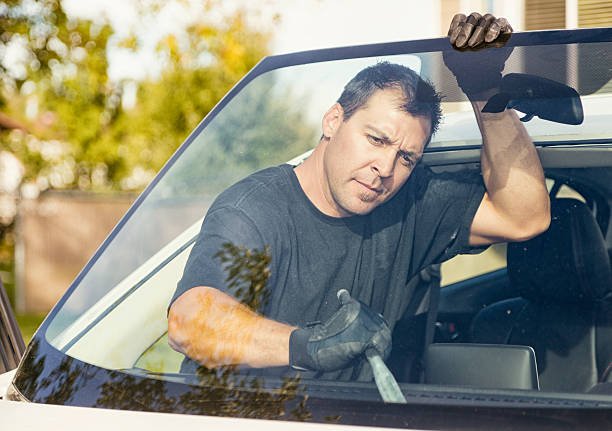Protect Your Windshield: Common Causes of Damage and How to Prevent Them
Your vehicle's windshield is more than just a piece of glass. It's a crucial component of your car's safety system, offering structural support to the vehicle and protecting passengers from external elements. However, it's also vulnerable to damage, which can compromise its integrity and safety. Understanding the common causes of windshield damage and how to prevent them is essential for any car owner. This article will guide you through this important topic, providing you with the knowledge you need to keep your windshield in top condition. Learn about the benefits of professional windshield chip repair for quality results.
Temperature Changes
One of the primary culprits behind windshield damage is the rapid temperature change. Glass expands when heated and contracts when cooled. In climates where temperatures fluctuate widely between day and night, or during the transition between seasons, your windshield can experience stress. This stress can lead to cracks, especially if there's any pre-existing minor damage like chips.
Prevention Tip: To mitigate the risk of damage from temperature changes, try to park your vehicle in shaded or covered areas during hot days. In colder climates, avoid using boiling water to de-ice your windshield. Instead, use lukewarm water or a proper de-icing agent along with a plastic scraper.

Road Debris
While driving, especially on highways or in areas of construction, your car is susceptible to flying debris. Rocks, gravel, and other materials can be thrown up by the tires of the vehicle ahead of you, striking your windshield with significant force. Even small pieces can cause chips or cracks that may spread over time.
Prevention Tip: Maintain a safe distance from the vehicle in front of you, especially large trucks or vehicles carrying construction materials. This distance gives debris more time to fall to the ground before reaching your car. Also, use your judgment to avoid roads known for loose gravel or ongoing construction when possible.
Poor Installation
A windshield that has not been installed correctly is at a higher risk of damage. An improper seal can lead to leaks and increased vibration, both of which can weaken the windshield over time. This might not be something you'd notice right away, but it can lead to problems down the line.
Prevention Tip: Always choose reputable auto glass specialists for windshield replacement. Look for businesses with good reviews and ask about their installation warranty. A good technician will ensure the windshield is fitted correctly and securely.
Accidents
Collisions, whether minor fender-benders or more significant accidents, can cause immediate and severe damage to your windshield. Even if the impact is elsewhere on the vehicle, the force can be enough to crack or shatter the glass.
Prevention Tip: While avoiding accidents entirely may not always be possible, practicing safe driving habits can significantly reduce the risk. This includes obeying traffic laws, being aware of your surroundings, and avoiding distractions while driving.
Weather Conditions
Extreme weather conditions pose a threat to your windshield. Hailstorms, in particular, can cause immediate and visible damage. High winds can throw debris and small branches against the windshield with enough force to cause damage.
Prevention Tip: When severe weather is forecasted, try to park your vehicle in a garage or under cover. If you're caught in a hailstorm while driving, seek shelter under a bridge or a similar structure if it's safe to do so.
Low-Quality Glass
Not all windshields are created equal. Some aftermarket replacements are of lower quality than the original manufacturer's glass. These may be more prone to damage from impacts or stress.
Prevention Tip: If you need a windshield replacement, opt for OEM (original equipment manufacturer) glass when possible. While it might be more expensive than aftermarket options, the quality and durability often justify the cost.
How to Address Minor Damage
Even with all the precautions, minor chips or cracks can still happen. It's crucial to address these issues promptly. Small chips can often be repaired, preventing them from turning into larger cracks that might require a full windshield replacement. Many insurance policies cover windshield repair, so it may be at little or no cost to you.
Prevention Tip: Inspect your windshield regularly for any signs of damage. If you notice a chip or crack, contact a professional windshield repair service as soon as possible. The sooner you address the issue, the better the chances of a successful repair.
Your vehicle's windshield is an essential safety feature that requires care and attention. By understanding the common causes of damage and how to prevent them, you can take proactive steps to protect your windshield and, by extension, yourself and your passengers. Regular maintenance and prompt attention to any damage can extend the life of your windshield and help ensure it provides the protection it was designed to offer. Remember, taking care of your windshield is not just about maintaining your car's appearance, it's a crucial aspect of vehicle safety. Consider exploring the use of DIY windshield repair kits for minor damages.